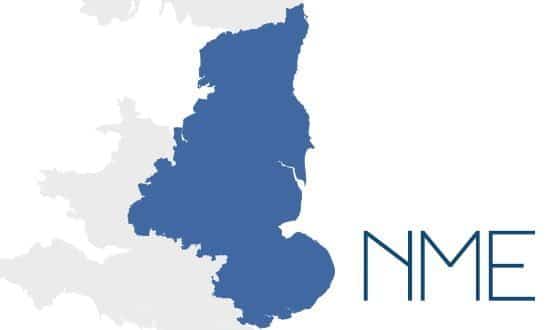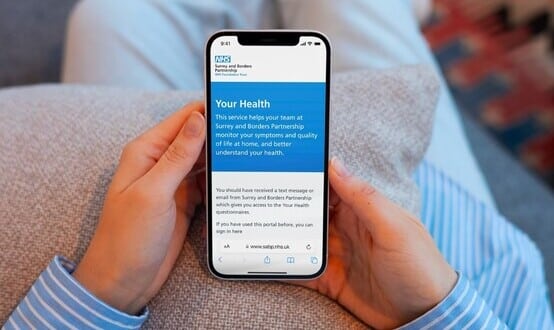Time for a change?

With this summer barely underway, next summer may seem a long way off. But for many people working in NHS IT in the North, Midlands and East of England, 7 July 2016 should feel ominously close.
This is the day on which the majority of contracts for clinical IT systems purchased as part of the National Programme for IT are set to come to an end.
Launched in 2002, NPfIT was the great plan to unify IT systems across healthcare economies, using large companies as local service providers to deploy electronic patient records from single vendors into trusts and GP practices.
Trusts in the NME should have received systems from Accenture, which pulled out in 2006, or CSC, which became the LSP for the entire region when this happened.
CSC was contracted to deliver the Lorenzo EPR developed by iSoft (which it later bought) to acute and mental health trusts but ran into development and deployment delays. As a result, only a handful of trusts have deployed Lorenzo, while other trusts took older iSoft products as ‘interim’ solutions or, latterly, made their own arrangements.
Community trusts and GPs should also have received a version of Lorenzo, but were given the alternative of picking TPP’s SystmOne at a relatively early stage. This means the end of the national contracts should open up the mental health and community markets, in particular, to new options.
A tight deadline
But trusts will need to move quickly. Alan Stubbs is the chief executive of Servelec, the company behind community EPR, RiO, which was deployed across much of London and the South as part of NPfIT.
He is frank in his assessment of the chance of all the NME trusts being off their contracts on 8 July next year. He says there is “no chance” of this happening, and that extensions to existing contracts will be necessary.
Stubbs’ concerns are shared by Alistair Eaton, programme director for community and mental health at Advanced Health and Care, another company looking to make an impact on the market with its community EPR CareNotes.
Speaking to Digital Health News, he says: “The trusts really need to be getting on with it. For example, the ones we are now winning are pretty big mental health and community providers and 12 months is not a huge amount of time to get those systems in.”
Many mental health and community trusts in the NME region have, of course, made arrangements for new systems. And several have gone with options from new entrants to the region such as Servelec, Advanced Health and Care, and Emis.
Stubbs, who has led Servelec since December 2013, is confident of his company’s potential in what he calls the ‘north refresh’. “That’s a big growth opportunity because there’s nothing to defend. We just have to go out and win trusts from TPP and iSoft,” he says.
Servelec is focused in its approach though, with Stubbs commenting that it is targeting 22 larger community sites, leaving 45 smaller sites where the company plans to let “let Emis and TPP fight it out”.
Using frameworks – or not
Emis is another company looking to make its mark on the NME region, and like its rival TPP has a background in supplying electronic patient records in primary care.
Martin Bell, director of community, children's and mental health at Emis, tells Digital Health News he is very hopeful about the company’s move into community in the NME region, with recent contract wins including one to provide a community EPR for Blackpool Teaching Hospital NHS Foundation Trust.
One thing that stands out for Bell about the NME is the greater number of ways trusts can go about procuring a new IT system, from directly going to the OJEU to using one of the several frameworks on offer.
“What was unique about London and the South was the large number of organisations all under a single framework… but in the rest of the country there will be a far greater spread,” he says.
In November last year, the Health and Social Care Information Centre warned that the end of national contracts in the NME was a “huge risk.” It estimated that this would affect about 266 organisations, of which 216 were not GP practices.
Of these, around 180 needed to start making transition plans. Although this number has since dropped, one of the striking things about the NME is that there has been no central move to address the contract end issue analogous to the programme to move trusts off national picture archiving and communications systems contracts.
Nor have trusts got together to form collaborative procurement structures, such as the London Procurement Framework referred to by Bell, which helped acute trusts in London transition from national to local Cerner contracts with relatively little fuss.
Interestingly, the success of the framework has meant several trusts in the NME region are using it. Eaton, of Advanced Health and Care, says the two successes that his company has had in the NME have come through another framework initially intended to enable southern trusts using RiO to procure new systems, which has also been extended to the north.
Some trusts have also expressed interest in a framework put together by NHS Shared Business Services, which has 26 suppliers in a number of lots.
The incumbents
In addition to the newcomers, the framework also features incumbent suppliers CSC and TPP, both of which seem relatively calm about the increased level of competition in the community and mental health arena.
In a comment to Digital Health News, a spokesperson for TPP said it is approaching the situation in July next year in the “same way as we would approach any contract”. It expects many trusts to remain on SystmOne.
CSC’s head of healthcare in the UK, Philippe Houssiau, recently told Digital Health News that the company is now well-placed to encourage trusts to stick with and extend their use of Lorenzo; and that it is looking to win new business in population health management and IT to support new business models.
A crucial aspect of CSC’s hopes in the area relate to a revised deal with the Department of Health, struck in October 2013, which enables trusts that still want Lorenzo to take it with some central, financial support. Only one community trust has taken up this offer so far – Norfolk and Suffolk NHS Foundation Trust – although several acute trusts have gone with it.
Meanwhile, the national programme’s mental health early adopter, Humber NHS Foundation Trust, which was unable to apply for the support, plans to move on from Lorenzo to a ‘best of breed’ approach.
New opportunities
Eaton is confident that other trusts will want to explore different approaches. “With the national programme running for so long, this is the first time trusts have really had an opportunity to look at how they can be a bit more innovative and transform their clinical service,” he says.
Ana Guimaraes, mental health product manager at Silverlink, tells Digital Health News she hopes trusts will look at “a lot of new technology and ideas from smaller suppliers”.
This includes Silverlink, which provides several of the elements that trusts can turn to when implementing a best of breed approach.
For Guimaraes, key IT elements to support community and mental health working going forward include greater use of mobile technology, especially apps, which “are less threatening as they already in widespread use.”
No matter what option community and mental trusts in the NME go for, they have to make that decision quickly. The NHS SBS is hopeful that the bulk of trusts will manage to hit that summer deadline, but suppliers are less confident; and few trusts have made decisive moves to date. The next 12 months will be a crucial countdown.




